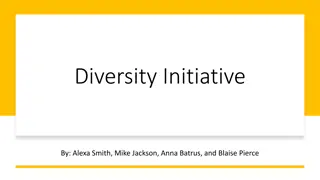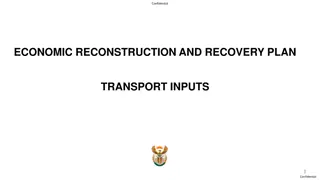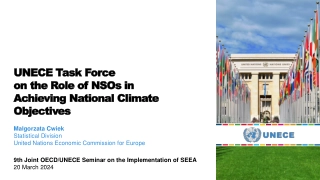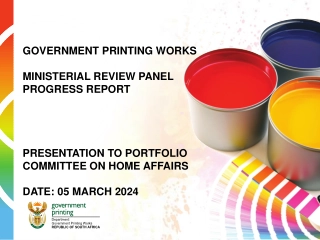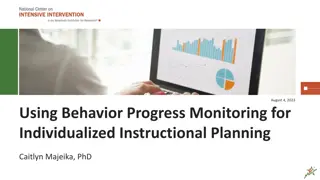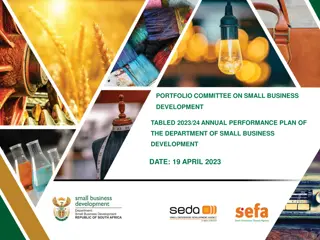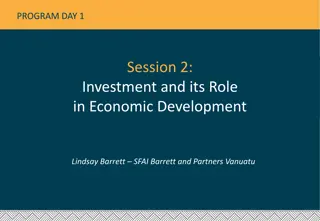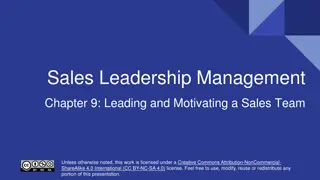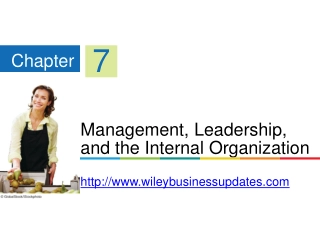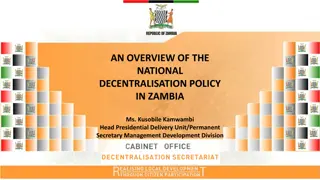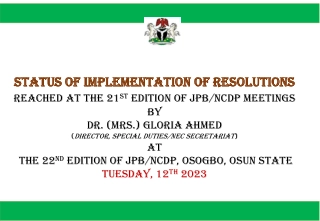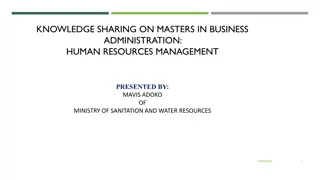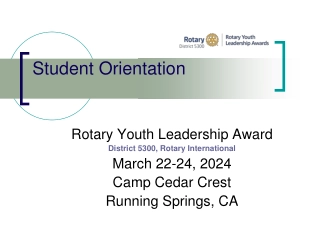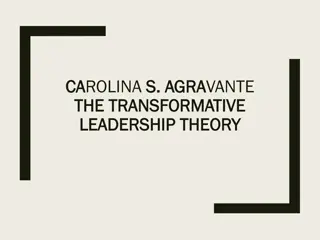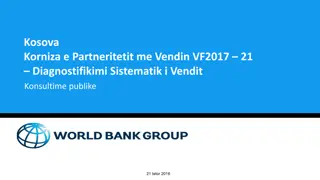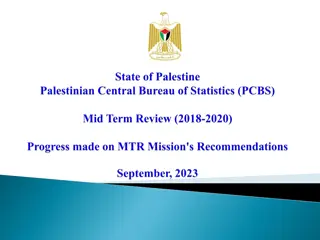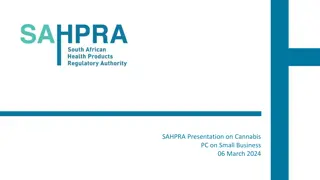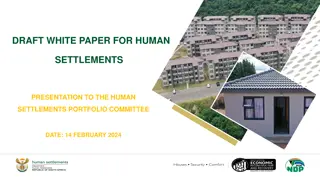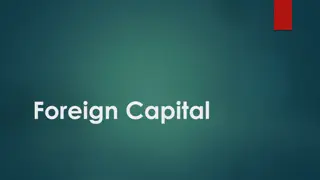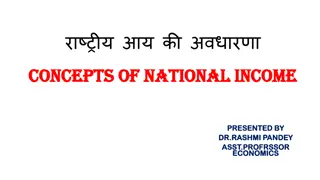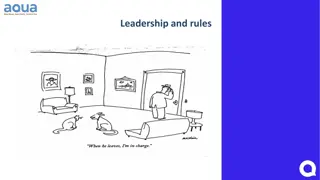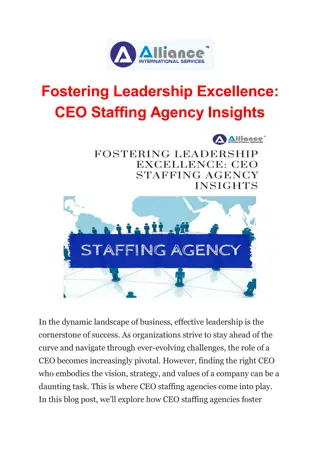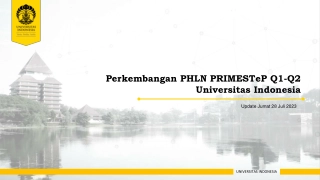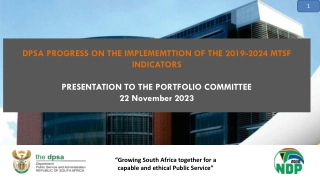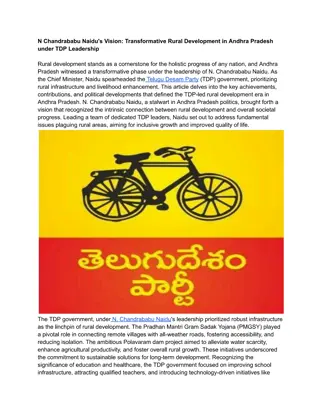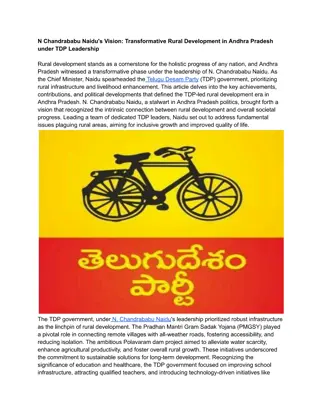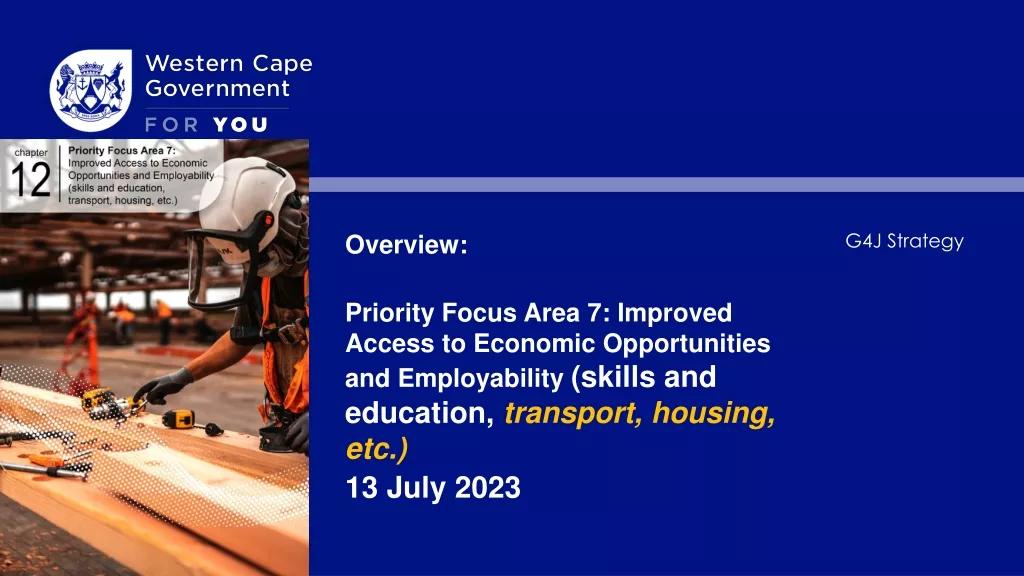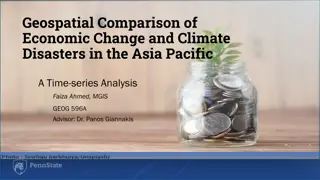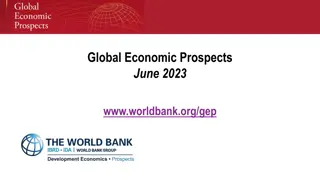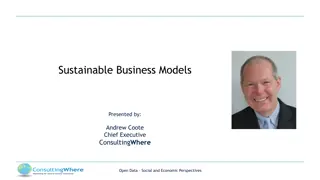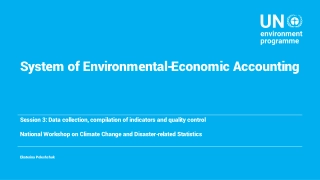The Role of Leadership in Economic Development and National Progress
Prof. Pikay Richardson highlights the significance of leadership in economic development and national progress, emphasizing the importance of competence, will, resources, and effective leadership in driving human progress. Leadership is identified as a vital ingredient for success across various societal, national, and organizational domains, influencing systemic change and the quest for better results.
The Role of Leadership in Economic Development and National Progress
PowerPoint presentation about 'The Role of Leadership in Economic Development and National Progress'. This presentation describes the topic on Prof. Pikay Richardson highlights the significance of leadership in economic development and national progress, emphasizing the importance of competence, will, resources, and effective leadership in driving human progress. Leadership is identified as a vital ingredient for success across various societal, national, and organizational domains, influencing systemic change and the quest for better results.. Download this presentation absolutely free.
Presentation Transcript
The Role of Leadership in Economic Development and National Progress PMI Open Lecture Prof Pikay Richardson, BSc, MSc, PhD Visiting Senior Fellow Alliance Manchester Business School, University of Manchester; Fellow in Economics Humboldt University, Berlin
Prof Pikay Richardson, BSc, Msc, PhD Degrees in Engineering and Management. Visiting Senior Fellow, Alliance Manchester Business School, University of Manchester, Manchester, UK Institute Fellow, GBZ, Humboldt University, Berlin, Germany Formerly Professor and Academic Director, NJIT, Newark, NJ, USA. Expertise: Business Economics; Strategic Management; Organisational Behaviour; Leadership Development; Int. Business; Corporate Government and Ethics. International experience in 26 Countries on Four Continents, including UK, US, France, Germany, China, India, Bangladesh, Hong Kong, Malaysia, Singapore, Dubai, South Africa, Botswana, Ethiopia, Kenya, Jamaica, Barbados, Nigeria, and Ghana.
Human Effort and Results Things Work ONLY if we make them work.
Human Progress: The Factors 1. Competence; Knowledge; Know-how; Skill 2. The Will; Heart; Desire; Dedication; Keenness to get accomplished What has been determined as the Right Thing to do, and doing it Right (Effective Leadership) 3. Resources (Money/Capital)
Leadership: The Vital Ingredient System design, System Change The Right Things v/s Things Right Policy formulation, Strategy and Execution Providing direction and guidance Providing Hope Societal, national, organisational progress In every area of human endeavour the primary ingredient for success is LEADERSHIP
Leadership and the Status Quo Every system is perfectly designed to get the results that it is getting today.
Leadership and the Status Quo Every system is perfectly designed to get the results that it is getting today. For a different of better results, the system needs to change. This requires Leadership
Setting the Scene: Africa Within A Globalising World Some Development Comparisons and Policies
People in Extreme Poverty (less $1 day) Mns 1981 1990 2001 2015 Sub-Saharan Africa LA & Caribbean ME & NA Europe & Central Asia East Asia & Pacific South Asia 164 36 9 3 796 475 227 49 6 2 472 462 313 30 7 17 271 451 340 43 4 2 19 216 Source: WDI (WB)
People in Extreme Poverty, % of population 1980-89 44 67 34 15 0 16 27 33 48 86 1990-2004 45 71 56 20 0 2 4 17 35 36 2014 47 70 60 18 0 1 2 17 34 38 Ghana Nigeria Zimbabwe Chile Singapore South Korea Malaysia China India Bangladesh
Life Expectancy at Birth, Years 1960 45 40 45 57 65 54 54 47 44 40 70 1990 55 52 60 72 74 70 70 70 59 52 78 2004 60 55 47 75 79 72 74 70 63 58 80 2010 59 55 44 75 79 72 73 71 63 58 80 Ghana Nigeria Zimbabwe Chile Singapore South Korea Malaysia China India Bangladesh United Kingdom
Global Marginalisation? - Level of IC GDP/Capita (%) 1965 1995 2004 18 66 67 Asian Tigers Sub-Saharan Africa 14 7 5
Shares of Global GDP, Int$ PPP, % 1950 26.2 7.8 1.6 3.8 27.3 3.0 4.6 100 1973 25.6 8.7 16.4 3.4 22.1 7.8 4.6 100 2003 19.2 7.7 33.9 3.2 20.6 6.5 15.1 100 (40913tr) WE LA Asia, (Jap) Africa US Japan China World Source: Maddison, 2007
Reasons for poor Economic Performance- Poor or Ineffective Leadership 1. External conditions inability to shake off legacy of centuries of slavery and colonial rule, neo- colonialism. Heavy dependence of a small number of primary products; no diversification Internal politics, characterised by authoritarianism, corruption and political instability. Economic policies protectionism, statism, fiscal profligacy or indiscipline, no planning, etc. Demography rapid population growth. Social conditions deep ethnic divisions, low levels of social capital. 2. 3. 4. 5. 6.
Now the Session Thesis Prosperity derives from Economic Development in turn, derives from Good Governance, which in turn derives from Visionary/Strategic Leadership
The Model Good Governance Economic Development Progress Effective Leadership HDI Public/private
The Model HDI
Bettering the Quality of Life High and growing per capita Income Good and improving Health, Life Expectancy Improving Education, skilled workforce and improving earning power, together, Improving HDI
The Model Economic Development Progress HDI
Economic Development/Growth - - Growth of Firms Output Growth of National Income (GDP) K Q Black Box L Leads to Improved Quality of Life
Policies for Prosperity What others did: 1. Macro-economic stability 2. Good governance 3. Strong disciplined institutions 4. Openness 5. Productive skilled labour 6. Improved corporate competitiveness 7. Good investment climate 8. Good supply-side policies
Lee Kuan Yew and Singapore Three main concerns National security Economic development Social issues and harmony Results: pc Income 1960 329 1800 206 405 1995 355 2100 425 21000 2003 461 3230 559 28000 Nigeria SA India Singapore
The Model Good Governance Economic Development Progress HDI Public/private
Good Governance Regime Governance: The manner is which power is exercised in the management of a country s social and economic resources for development (Public and Corporate)
Characteristics of a Good Public Governance Regime Participation Rule of law Transparency Responsiveness Equity Effectiveness and efficiency Strategic vision Taking advantage of globalisation
Governance and the Public Sector Develop and implement development policies and programmes Create an efficient, effective and responsive public service Promote an environment conducive to wealth creation by the private sector Establish and manage and effective transparent regulatory and legal environment
Governance and the Public Sector, cont. Address the issue of accountability in the public service Enhance institutions that promote and enforce the rule of law Manage the changing roles of the public sector in the context of globalisation Cultivate and nurture an environment that will accelerate poverty reduction and sustainable development
Governance and the Private Sector (Corporate Governance) Promote efficient and competitive services Compete efficiently in the global economy Improve productivity and output Undertake R&D Dialogue effectively with other stakeholders public sector, civil society in order to influence the policy agenda Establish codes of practice Enhance corporate governance and social responsibility
Governance and Leadership Good Governance is concerned with one thing the good and progress of society. The essential ingredient for this is Good and Effective Leadership
The Model Good Governance Economic Development Progress Effective Leadership HDI Public/private
Re-cap: Leadership and the Status Quo Every system is perfectly designed to get the results that it is getting today. For a different of better results, the system needs to change. This requires Leadership
Leadership Leadership is a process whereby an individual influences a group of individuals to achieve a common goal.
Effective Leadership the development of vision and strategies, the alignment of relevant people behind those strategies, and the empowerment of individuals to make the vision happen despite obstacles - Kotter
Dimensions of Who Leaders Are? Three Components: Knowledge Sense of Service Courage and Conviction
What are the Mark of Leaders What Do Leaders Do? Ability to determine the best way forward, and lead the way to achieve it. Ability to develop/adapt Ability to collaborate Ability to Lead teams Non-authoritarian Consistent exceptional performer Ambitious for human progress
The Challenge of Leadership Leaders develop Vision, set Agendas, align people behind them, and get organisations/nations to charge in the direction of progress.
Hence * Lack of Good Leadership, leads to * Lack of Good Governance, which in turn leads to * Poor micro/macro-economic Performance, and * Slow or nil Economic Growth
Re-cap - The Model Good Governance Economic Development Progress Effective Leadership HDI Public/private
Re-cap: Finale Things work ONLY if we make them work.
Established in Creation If you plant a good Tree, you harvest good Fruit. Matthew 7:17-20 17A good tree produces good fruit, and a bad tree produces bad fruit.18A good tree can t produce bad fruit, and a bad tree can t produce good fruit.19So every tree that does not produce good fruit is chopped down and thrown into the fire.20Yes, just as you can identify a tree by its fruit, so you can identify people by their actions.
Established in Creation If you plant a good Tree, you harvest good Fruit. Luke 6:44 No good tree bears bad fruit, nor does a bad tree bear good fruit.Luke 6:44 For each tree is known by its own fruit. Indeed, figs are not gathered from thornbushes, nor grapes from brambles.
Finale Things work, ONLY if we make them work, Things work, ONLY as well as we make them work.
Thank you Pikay Richardson, BSc, MSc, PhD Email: Pikay Richardson@yahoo.com pikay.Richardson@manchester.ac.uk Te; +44 772 065 418
Prof. Pikay Richardson, BSc, MSc, PhD * Degrees in Engineering and Management. * 17 years: Snr. Fellow, Manchester Business School; Prof. of Business, UB, Gaborone. * 2 years: Professor and Academic Director, NJIT, Newark, NJ, USA. * Teaching Expertise: Economics; Strategy; Leadership; Marketing, Int. Business, OB. * International experience: UK, US, France, Dubai, Germany, China, India, Ghana, SA, Hong Kong, Singapore, Malaysia, Botswana, Nigeria, Jamaica.
Lee Kuan Yew and Singapore Three main concerns National security Economic development Social issues and harmony Results: pc Income 1960 Nigeria 329 SA 1800 India 206 Singapore 405 1995 355 2100 425 21000 2003 461 3230 559 28000




